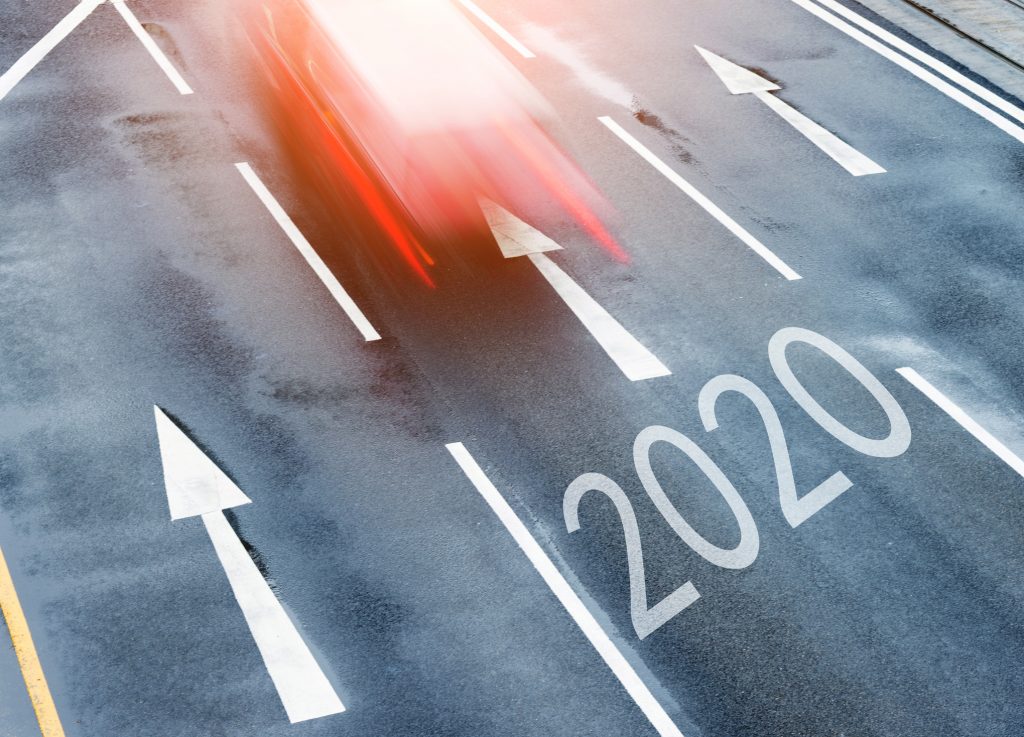5 Driving Law Changes to Be Aware of in 2020
Another year, another decade, and another set of new driving laws.
While the act of familiarising yourself with these upcoming 2020 laws may not be the most exciting New Year’s resolution, it’s still an important one! So, to ensure you don’t get caught out, we’ve put together a list of the key changes on the horizon that you need to watch out for.

MOTs are changing
This one starts immediately in 2020, so it’s time to get clued up on the new MOT shake-up. The first change impacts how defects are categorised, which are classified as follows:
- Dangerous: Risk to road safety, and immediate fail
- Major: Might affect road safety, and immediate fail
- Minor: Not likely to affect safety, but still needs repair
- Advisory: Has potential to affect future safety, but you’ll pass
- Pass: You’re safe, lawful and will pass
Also, additional checks will be performed by the mechanic during your MOT, on top of the regular ones. These include checks for: contaminated brake fluid, under-inflated tyres, missing brake pads or brake pad warning lights, and also reversing lights and daytime running lights for applicable vehicles.
Green cards
Brexit is big news, and is likely to affect how Brits drive in Europe. The precise changes will depend on the deal we strike, if any, and so it’s hard to give concrete guidance. One thing is for sure – if you’re planning a summer getaway, it’s wise to check what documentation you need before venturing onto European roads. You may require either an International Driving Permit or Green Card – or both – which will need to be obtained at least a month before travel.
Low emission regulations
Another hot topic is air pollution. In efforts to decrease the volume of harmful emissions into our atmosphere, Central London has been operating as an Ultra Low Emission Zone since 2019, with plans to extend this to a wider area of London by 2021.
This year will see Birmingham and Leeds also creating their own schemes, with other key UK cities also considering this path. If your car does not meet the emission standards when driving in these areas, you could face a fine – so keep up to date with these changes.
New drivers
Whilst not set in stone, there are talks of placing more stringent laws on newly-qualified drivers, to keep themselves and other motorists safe while they’re finding their feet.
For drivers who have less than 2 years’ driving experience, it’s speculated that the restrictions could include:
-
- Curfews: Only allowed to drive at certain times of the day
- Plates: Must display P plates on the vehicle
- Passengers: A limit on the number of passengers you can carry
- Engine size: Limit to engine power
- Alcohol: Lower legal alcohol limits
- Speed: May need to adhere to separate, lower speed limits
Nothing has been confirmed yet, and pilot schemes are currently in progress, but it’s something that might well be rolled out in the coming year or so.
Car tax
Tax prices are set to soar in 2020, due to larger fees for owners of high emission cars – this will especially impact owners of diesel cars. Though due to inflation, all drivers are likely to experience a rise in their car tax fees.
Stay safe on the roads with help from Mr Tyre. As Central England’s premier autocentre, we offer professional MOTs, repairs, tyre fittings and vehicle servicing, in line with up-to-date rules and regulations. With over 50 years of industry experience, you can trust in our experts. Contact us to find out more – we have 35 branches throughout the region.

